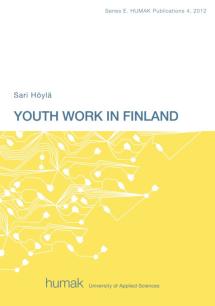Youth work in Finland

The article examines Finnish youth work and its objectives and development through legislation. In the current legislation, youth work is assigned the task of promoting young people’s active citizenship and participation. Other key objectives of youth work include young people’s social empowerment and independence, as well as improving young people’s growth and living conditions. Nevertheless, a young person is not an object in youth work, but an active agent, who is supported by the youth worker through a dialogic relationship. Youth work is part of youth education, which supports the educational duties of home, school and the surrounding society. Its objective is not only to provide knowledge and technical skills, but to allow young people to learn how to operate as full members of communities and society. Youth work is based on the willingness of young people to participate in their leisure time in activities together with other young people. Youth work employs a broad range of methods that vary according to the interests of the young people involved. Finland is characterized by a large number of youth work professionals. Youth work education is provided at upper secondary and university levels in Finland.
The government and local authorities are responsible for creating framework conditions for youth work, as well as for supervising the funding and implementation of youth work. In matters affecting young people, different authorities are expected to work in cross-sectoral cooperation at both national and local levels. The state provides subsidies for youth work, although the amount spent by local authorities on youth work is several times higher than the subsidies.
Key Concepts: Youth Work, Non-formal Learning, Participation, Active Citizenship, Social Empowerment, Dialogic Relationship.